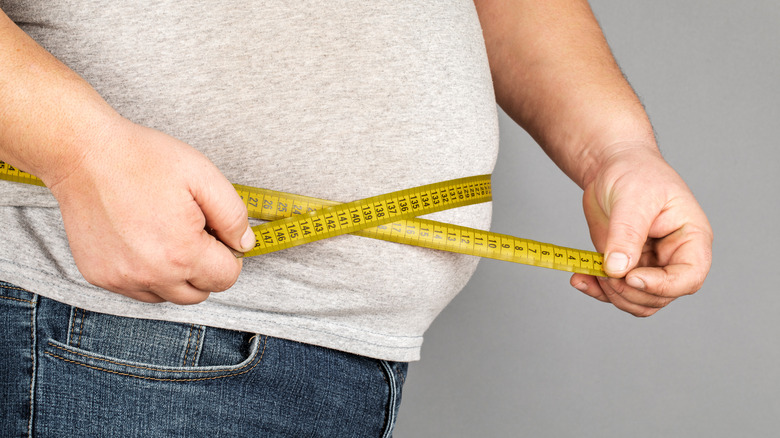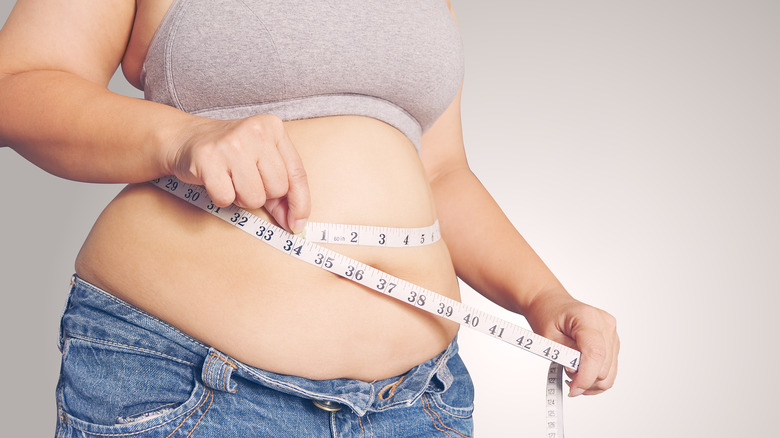What's Really Happening In Your Body If You Have Belly Fat?
Fat gain around our midsections is quite common. According to Medical News Today, there are many factors that contribute to belly fat, which include a poor diet, stress, genetics, lack of exercise, and excess alcohol. It's called the muffin top. The beer belly. A sizable paunch. Funny and relatable names aside, the extra weight around our midsections is a real concern to our overall health.
This isn't a worry reserved for those who are obese or even overweight. According to The New York Times, you can be within a healthy weight range and still harbor a dangerous amount of belly fat, medically known as visceral fat, behind your abdominal wall. "Visceral fat is not the type of fat you can pinch with your fingers," says registered dietitian Erin Palinski-Wade, to HealthiNation. "Instead, it is the dangerous fat that lies below the abdominal wall, blanketing vital organs and releasing chemicals and hormones that trigger inflammation." In addition to a possible harmful influx of chemicals and hormones, the excess fat around your midsection could be the cause behind some serious diseases in the future.
Visceral fat can harm our health in the future
The New York Times states that the fat padding our bellies can become an insulin blocker, which in turn makes you more exposed to developing type 2 diabetes. For women, excess belly fat was shown to increase their risk of breast cancer. And for both sexes, there is an increased likelihood of developing dementia during the later years of life if you carry extra weight around your midsection for decades before you become a senior citizen.
Considering how risky the extra pounds around our midsection can be to our health now and in the future, shedding them should be considered. Byrdie relays that an overhaul of your diet can be one of the best ways to see results. "There is a lot of 'nutri-babble' out there, and the only thing that will help you achieve a slimmer belly in the long term is a sustainable food plan that includes a rich variety of natural whole foods and less processed foods, in appropriate sizes and moderation," says Helen Bond, an expert dietitian at The Harley Medical Group via Byrdie.
Your life doesn't have to resemble "The Biggest Loser." The CDC says even moderate weight loss, such as five to 10% of your total body mass, can result in better overall health. Many of us may never achieve a six-pack or even a soft but flat midsection. Though in order to protect ourselves from serious conditions in the future, we should try our best to avoid a sizable paunch.


